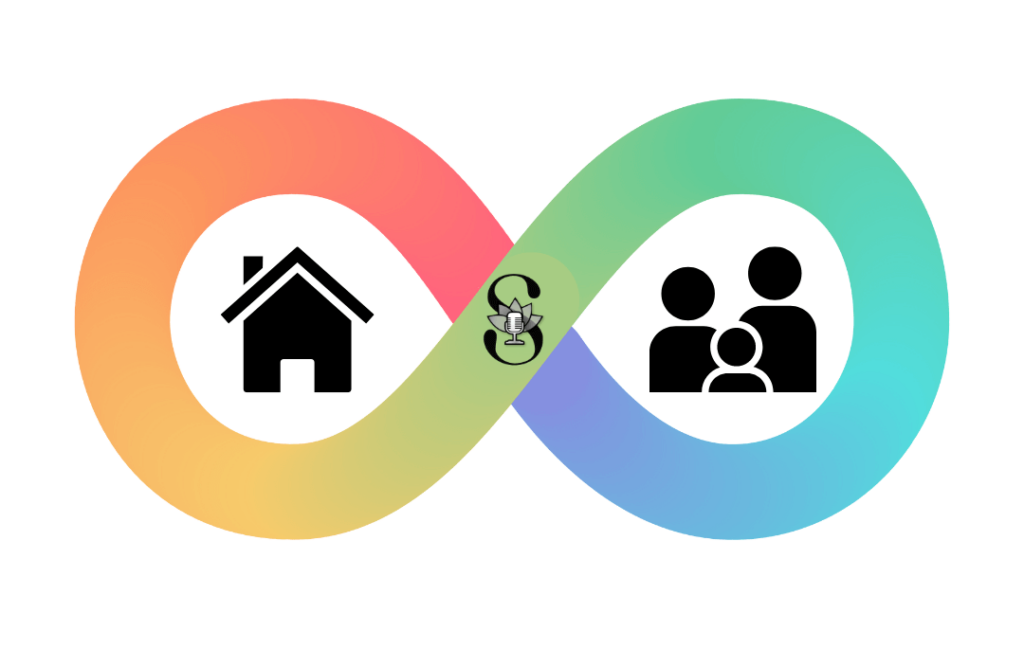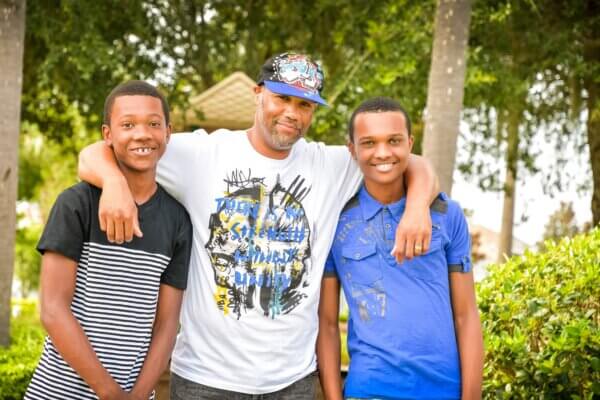How to Stop Negative Interaction Cycles in Relationships
We all fall into repetitive patterns of relating to our partner or our children. This is normal. I call them cycles of interaction, or cycles for short. These cycles can be positive and promote connection. These cycles can also feel like negative ruts that prevent connection, and leave us feeling frustrated with ourselves, with the other person, with the situation, or all of the above!
Here’s the tricky thing about negative cycles. They are a lot more about process than they are about content. For example, you might have a negative interaction with your partner about the budget, about intimacy, about the family vacation you are trying to plan, or about who should have cleaned the kitchen last night. These conversations might feel different because they are about different types of content. Intimacy and dishes are, usually, two different types of content!

However, the process of communicating about these different types of content can be eerily similar. For example, Partner A brings up a topic that’s important to them, something where they are seeking increased engagement from their partner. Partner B interprets the request for increased engagement as a message that they aren’t doing their part, they aren’t good enough, and they feel criticized, causing them to withdraw verbally and non-verbally from Partner A. Partner A immediately notices that Partner B is shutting down and interprets that as rejection, which triggers a fear in Partner A that they are too much, and that they are never going to be able to get their needs met. This relational process could be playing out about intimacy or who is on point for driving kids to activities! In either case, both people are feeling triggered and interpreting their partner’s verbal communication, nonverbals, and actions in a way that causes them to feel more disconnected and alone.
When these negative cycles happen on repeat, we can feel helpless in the face of their power. An established negative cycle just needs a trigger, and then before you know it, you and your partner are enacting a familiar drama that sets in quickly and is hard to escape. In couples therapy, the symbol used for cycles is an infinity loop and there’s a good reason for that! When couples get stuck, it’s not because one person did something and it had a singular impact on another person. There is a never ending loop of perceptions, comments, actions, and interpretations (some that are observable and some that are under the surface) that unfold between partners as we seek connection, and face the disappointment and hurt of missing each other.
This same process happens between parents and children. Maybe you have a power struggle every morning trying to get out the door on time or maybe it’s the same conversation over and over about homework or cleaning their room. Whatever it is, it’s not long before you find yourself feeling like, “here we go again!” The major difference between interaction cycles between partners, and interaction cycles between parents and children, is that there is a significant power imbalance between parents and children. That means that the responsibility for change belongs to the parent. No matter how frustrating children’s behaviors might be, it is not a child’s job to fix a dysfunctional interaction pattern with their parent. The child’s part in the cycle will eventually change too, but that change will come from the parent’s leadership and example.
Does this sound familiar? Maybe you feel a pit in your stomach because you know this scenario all too well. What can you do?
A good first step is building your own awareness of your part in the cycle. It takes two to tango, and even if your intentions are good, what’s happening inside you is contributing to the problem that is happening between you and the other person.
To build awareness, become a student of yourself. Here are some good questions to guide your self-study.
What tends to trigger me when I interact with my partner or child?
When I’m triggered, how do I perceive them?
What emotions come up for me? How do I feel in my body?
What do I find myself saying and/or doing in response to my partner or child?
What is the story I tell myself about me? About my partner? About my child? About our relationship?
What feels vulnerable in me? Is there sadness? Fear? Shame? (Often those vulnerable emotions get covered over by reactive emotions like frustration, anger or defensiveness.)
It will take curiosity and time to gather this information about yourself. When you and your partner fall into a negative cycle, you likely have one thing in common. You are both feeling activated! It will take calming down your body and reflecting on your experience to get more clear about what is happening for you in the cycle, and that information can be invaluable!
Once you build your awareness and you can begin to make sense of what’s happening in you and between you and the other person, it will become easier to feel more compassion and less bewilderment. Then, you can begin to experiment with your part in the cycle. Maybe you can identify one thing you could do differently and see how that opens up the interaction. For example, if you notice that you use an unhelpful tone of voice under relational stress, what happens if you practice breathing instead? Does that allow you to stay more present to yourself and to the other person?
A helpful resource for couples looking to interrupt these cycles is the book Hold Me Tight by Sue Johnson, the developer of Emotionally Focused Couples Therapy. However, sometimes it is beneficial to have the support of a couples’ therapist. Indications that the support of a therapist would be helpful are if the negative cycle is having a significant impact on your child or your partner, if it doesn’t feel like there’s enough emotional safety in your relationship to work on growth independently, or if one or both partners is feeling hopeless in the relationship.
There is hope. We can learn to relate to ourselves and to others differently. Sometimes all we need is a relationship tune-up, and sometimes we need deeper healing to experience the connection we long for. It’s also okay if you don’t know what you need yet. Sometimes it’s enough to just get curious and see what you can learn as you practice being a student of your own experience.
Angie Lai is an Associate Marriage and Family Therapist who offers in-person and virtual therapy to couples, individuals, and teens in the Fremont neighborhood of Seattle. Angie is an avid lifelong learner about relationships, which have been greatly informed by 25 years of marriage and raising three unique and wonderful teenagers. www.angielaitherapy.com





Comments